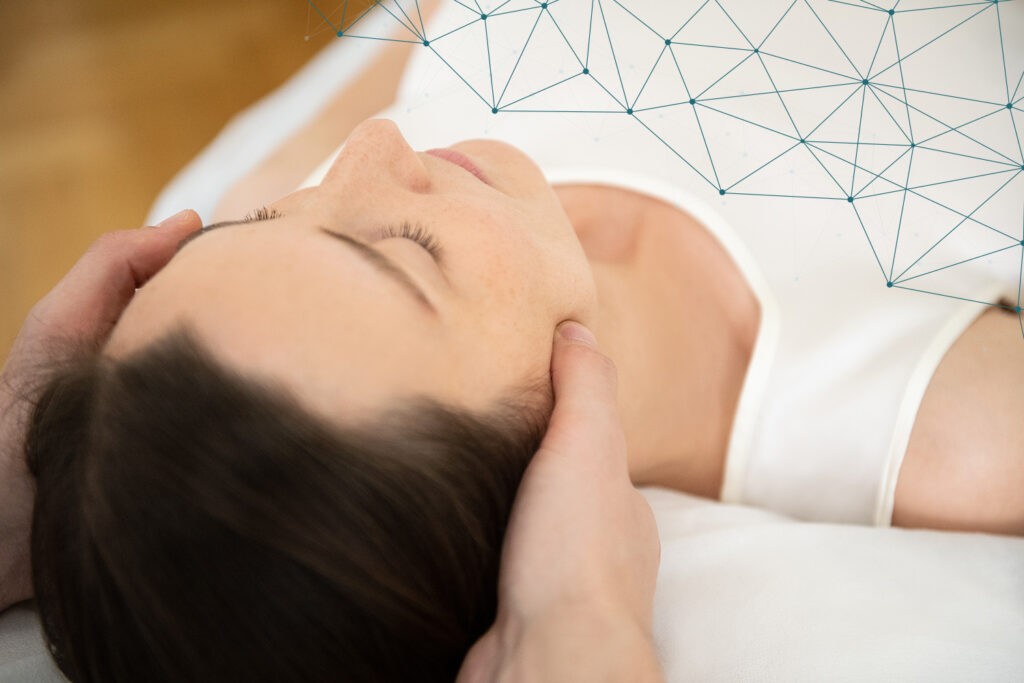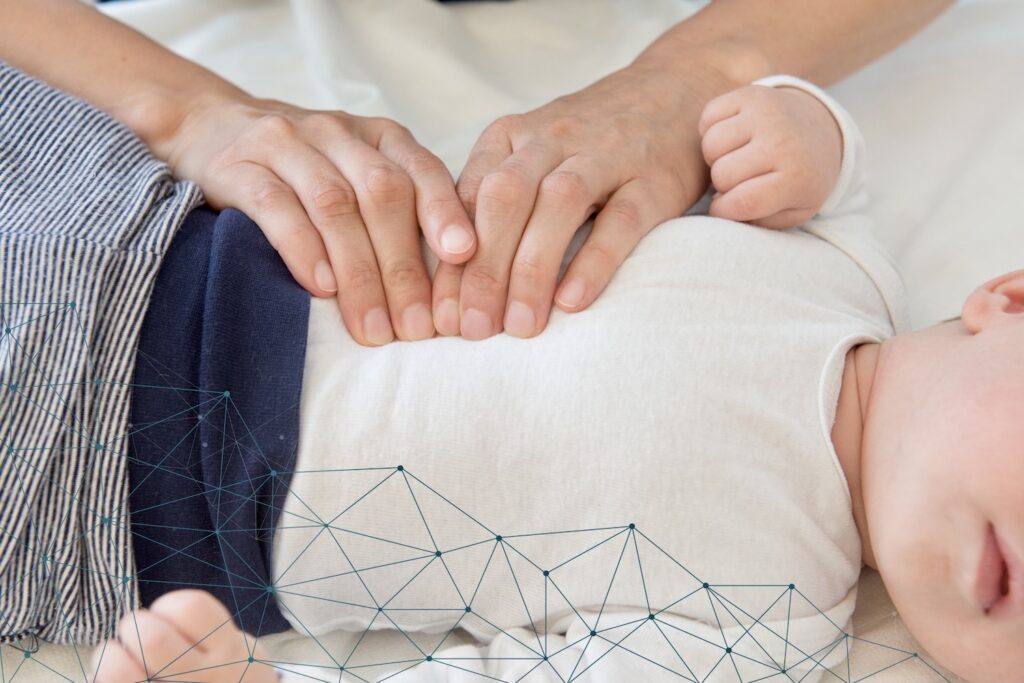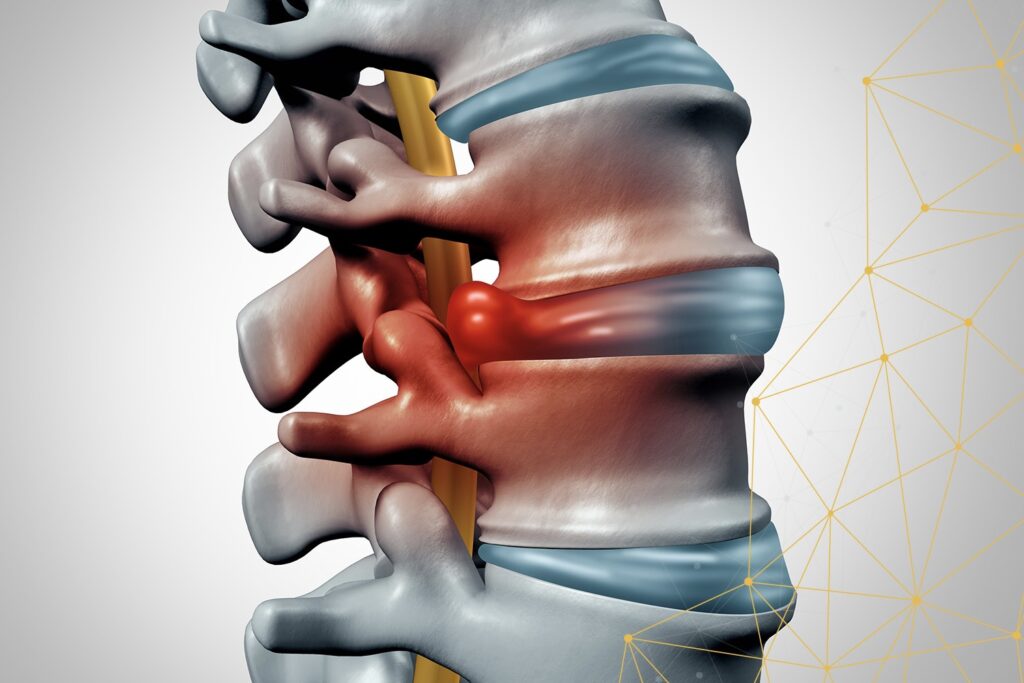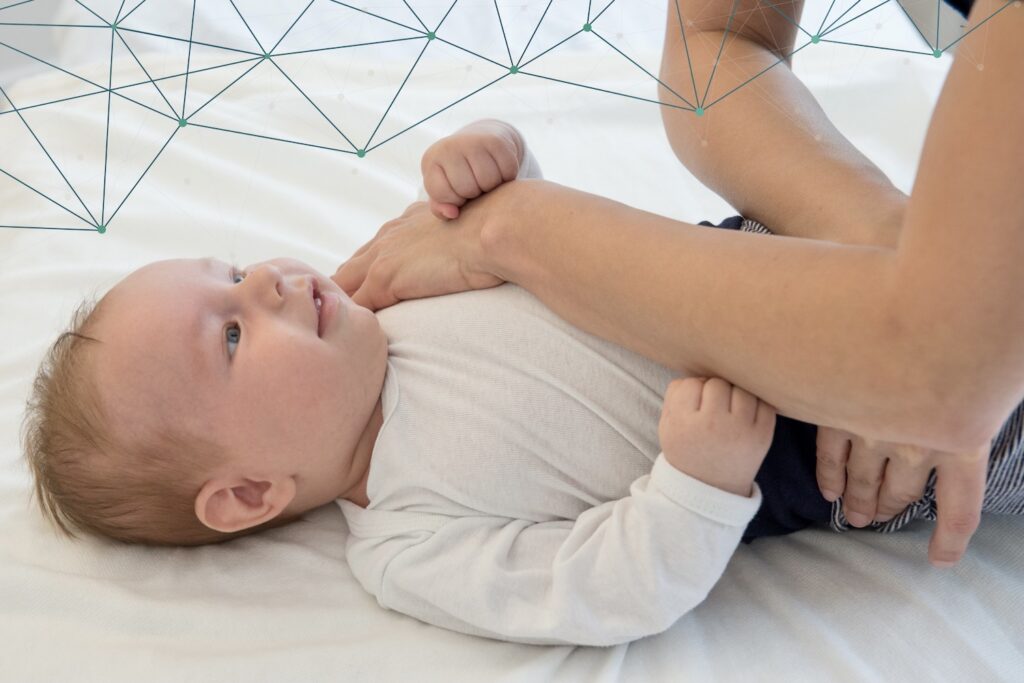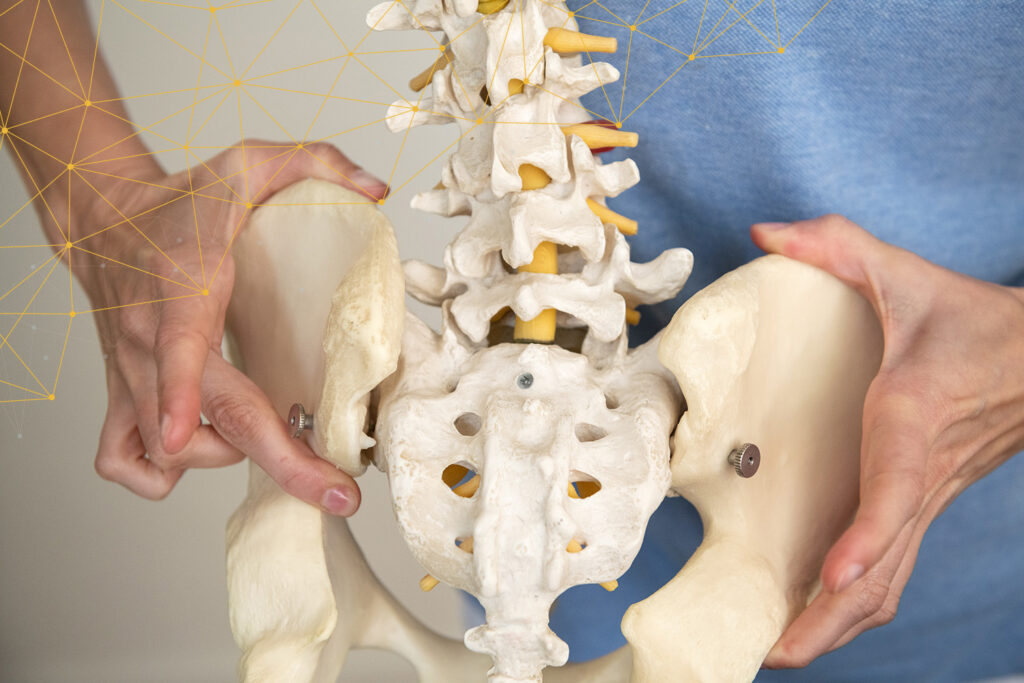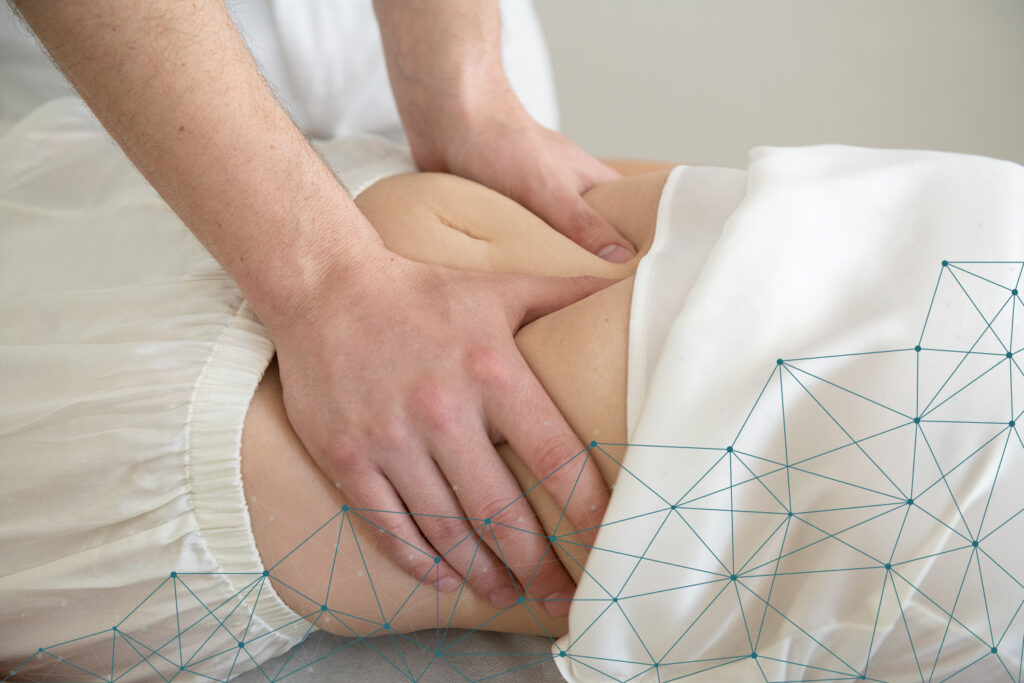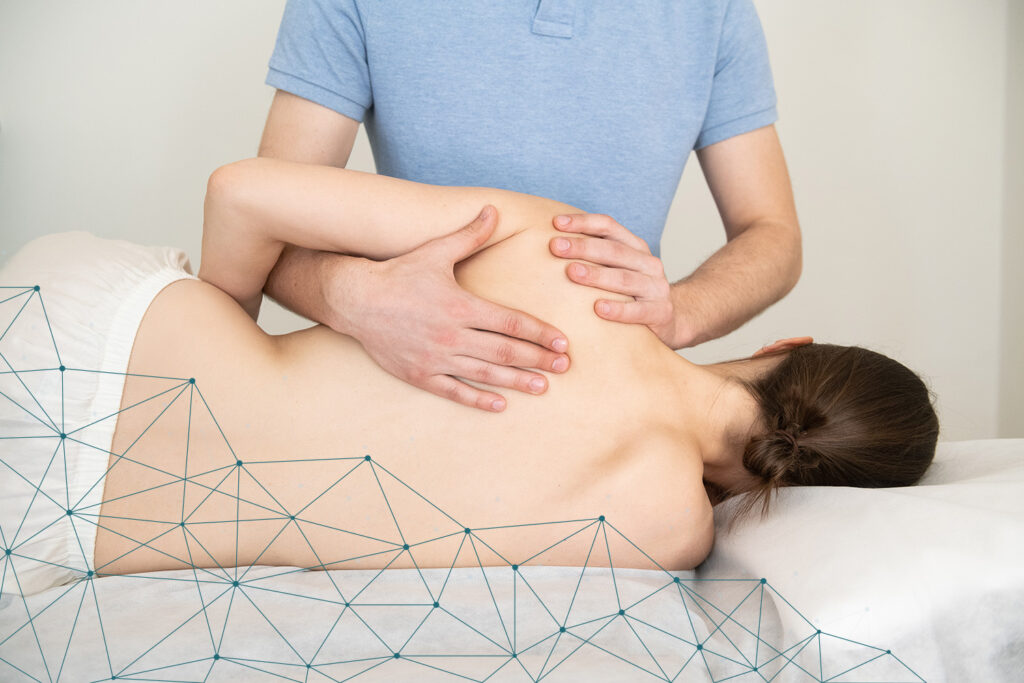An osteopathic check-up for newborns
Exploration
Before we examine your baby, we start with a detailed conversation. We discuss details about pregnancy and birth and check how your baby is feeling: how is digestion and sleeping?? How does your baby reduce stress? Putting all the pieces of the puzzle together helps us to better understand your baby and see the bigger picture.
Then we examine the newborn with gentle grips. As osteopaths we are trained to feel very subtly. We “hear”, so to speak, with our hands what your baby’s body wants to tell us.
What attracts our attention? What is the general muscle tone like? What is the flexibility and dynamics of the cranial bones? Are the vertebrae moveable? Is there tension around the diaphragm? Is there tension around the diaphragm?
We always look at the mutual relationships in the body. You could say that we use the same anatomy, neurology and physiology as conventional medicine, but look at it through a different lens. Finally, the symptom may be in a different place than the cause.

Treatment
We then treat the movement restrictions identified in your child. This is done through gentle, manual techniques. We, as osteopaths, will not “crack” small children. Most babies find the treatment pleasant and react by calming down or falling asleep.
However, your baby may also become a little restless at times. Together with the blockage, the “memory” of a painful moment, namely the moment of the blockage, can also be released in the body with all the associated emotions. After treatment, however, many parents experience that their baby is more relaxed.
From what age?
If your baby’s birth was very difficult (too fast, too slow, medical interventions: Induction, vacuum birth, emergency caesarean section, …) or if your baby is obviously not well (pain with certain movements, a preferred posture, a lot of crying, breastfeeding problems…), we recommend it is best to make an appointment as soon as possible.
Aren’t there any urgent complaints? Then it is okay to make an appointment when your baby is about 4 weeks old.. You can then already get a good picture of your baby’s rhythm (sleeping habits, feeding, bowel movements) and any loss of movement is very noticeable.

Does every osteopath treat babies?
A baby is not always a mini version of an adult. The general osteopathic training provides a foundation for the treatment of infants and children.
Nevertheless, we advise you to go to an osteopath with children who has specialised in osteopathy for babies and children during a 2-year additional training.
Haben Sie Fragen zur Osteopathie
und wünschen Sie einen Termin?
Kontaktieren Sie uns per Telefon. Gerne besprechen wir mit Ihnen, wie wir Sie oder Ihr Kind unterstützen können.
Do you have any questions
and would you like an appointment?
Contact us by phone. We would be happy to discuss with you how we can support you or your child.



